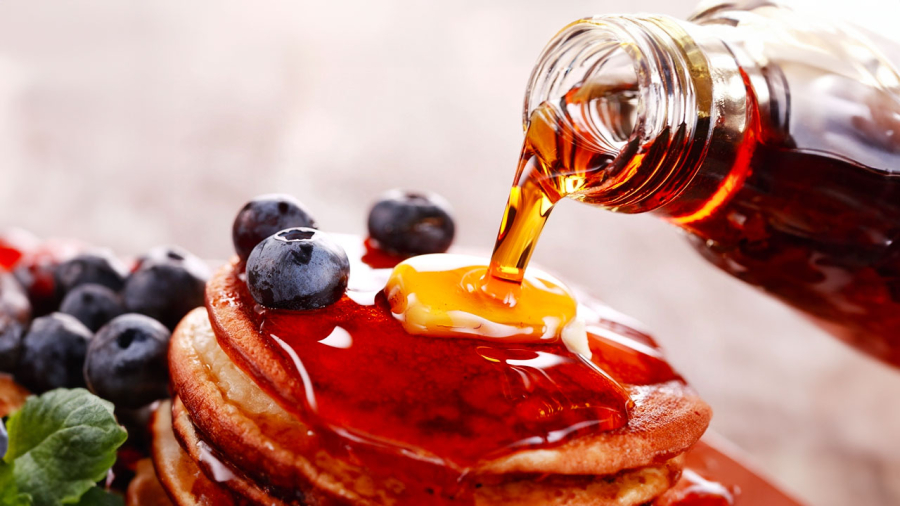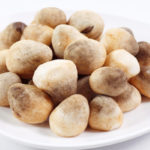Dangerous for the liver more than alcohol and sugar
In 1970, the United States introduced a sweetener called fructose syrup. Since then, there has been a wave of abandoning regular sugar and switching to fructose syrup. This has also led to an increase in obesity rates in the country from 13% to 40%; the rate of gout increased from 3% in 1970 to 9% in 1996; the rate of diabetes increased from 1% in 1958 to 7.4% in 2015.
Until now, fructose syrup has become popular worldwide. It is composed of fructose and glucose. Its sweetness comes from the high proportion of fructose (fructose is the leading sweetener).
Not only does fructose syrup add sweetness, but it can also improve the taste of food, extend shelf life, and most importantly, it is cheaper than sucrose.
Therefore, many health care products for the elderly or snacks for children contain this flavoring.

Our bodies have a fairly complete system for managing glucose metabolism: 80% of glucose moves in the blood to provide energy to organs and cells, the remaining 20% remains in the liver as glycogen reserves. At this stage, insulin is used to regulate blood sugar levels. However, the body does not process fructose as well as glucose. Over 90% of it can only be metabolized into fat in the liver, ultimately leading to a range of health problems.
A 2009 study published in the “Journal of Nutrition” showed that people who drink a glass of fructose syrup-containing beverage every day have a 55% higher risk of developing fatty liver disease than those who do not drink such beverages.
Not only that, fructose also causes more harm.
What health hazards can fructose syrup cause?
Diabetes
A 2009 study published in the “Journal of Clinical Investigation” revealed a link between fructose syrup and diabetes.
The study invited two groups of volunteers, one group drank 3 cups of fructose syrup-containing beverages a day and the other group drank 3 cups of glucose-containing beverages a day. The result was that the fructose-containing beverages were more likely to accumulate fat in the organs, reduce insulin sensitivity, and increase the risk of developing diabetes.
Researchers from Oxford University and the University of Southern California also confirmed this view in 2012. After comparing 42 countries, they found that countries using fructose syrup had a 20% higher risk of developing type 2 diabetes compared to countries that did not use fructose syrup.

Gout
A study on gout and the amount of fructose sugar syrup was conducted by a doctor at Boston University in the United States. The study involved 46,000 participants and lasted for 12 years.
The result was that people who drank beverages containing fructose syrup 5-6 times a week had a 29% higher risk of developing gout than normal individuals. People who drank beverages containing fructose syrup at least 2 times a day had an 85% higher risk of developing gout.
The reason fructose syrup can cause gout is because:
– During liver metabolism, fructose produces adenosine diphosphate, leading to increased production of uric acid.
– Excessive absorption of fructose will result in excess energy. The excess energy is metabolized into neutral fats and stored in the body, and uric acid is also produced during this process.
– A large amount of fructose can reduce the ability of the kidneys to excrete uric acid and increase the risk of developing gout.
In addition, eating sugar and fructose have been shown to cause inflammation, increase the risk of obesity, heart disease, and cancer.

5 types of food and beverages containing high fructose syrup
– Beverages: Fruit juice, ice cream, yogurt, carbonated drinks, etc.
– Cakes, bread, soft candy, etc.
– Alcohol: Sweet wine, fruit wine, cider, red wine.
– Functional foods.
– Canned food: Preserves, canned fruits, preserved fruits, etc.
How to consume sugar safely?
A 2008 study published in the “American Journal of Clinical Nutrition” showed that if the daily fructose consumption is below 50g, the body can metabolize this sugar properly without adversely affecting blood lipids and body weight. Therefore, what you need to do is not to completely avoid consuming them, but to control the amount of food you consume.
When buying food and beverages, you should carefully check the ingredient list to see if they contain fructose syrup. For sugar-free products, don’t be careless because excessive intake of aspartame, cyclamate, saccharin, acesulfame potassium, and other sweeteners used in sugar-free foods are also harmful to the body.
For drinks such as coffee and milk tea, you should also drink them with less or no sugar.
If you want to consume sweet foods, eat fruit instead. Although they contain fructose, the amount is much less than that in beverages, and they also contain a lot of fiber, which can support metabolism and digestion.
Unveiling the Miraculous Benefits of Mushrooms
From the savory flavor they offer in dishes to their vast array of health benefits, mushrooms are a major force in the culinary world. Not only are they known as a delicious ingredient in countless recipes, but their impressive benefits can help to fight obesity, high blood pressure, and even cancer prevention.





































